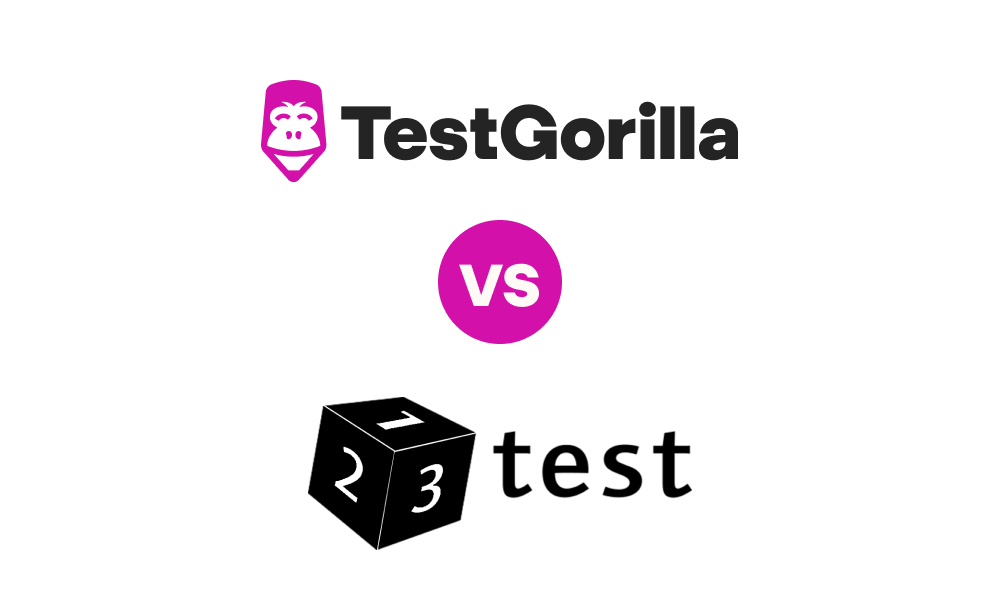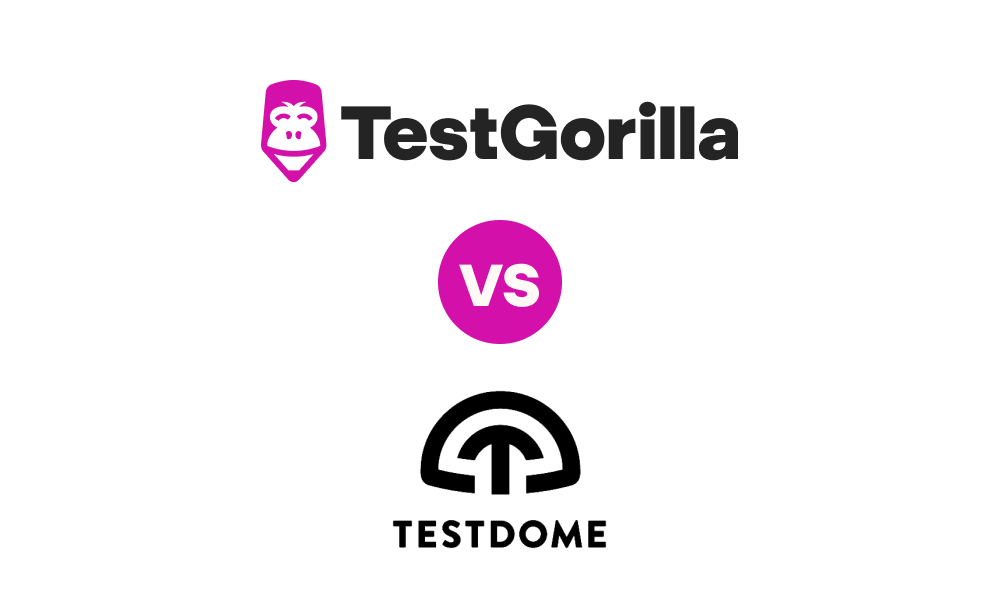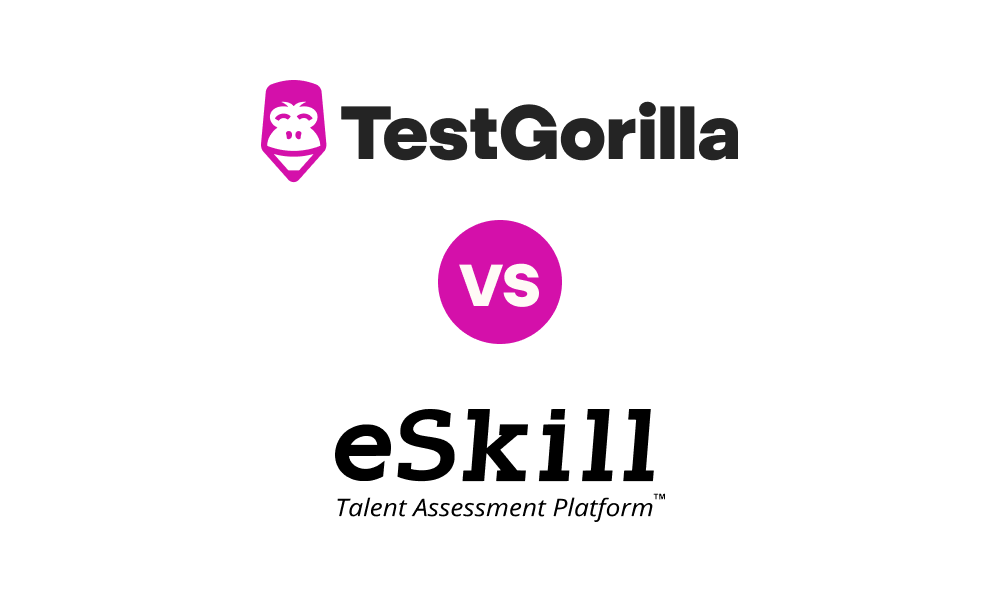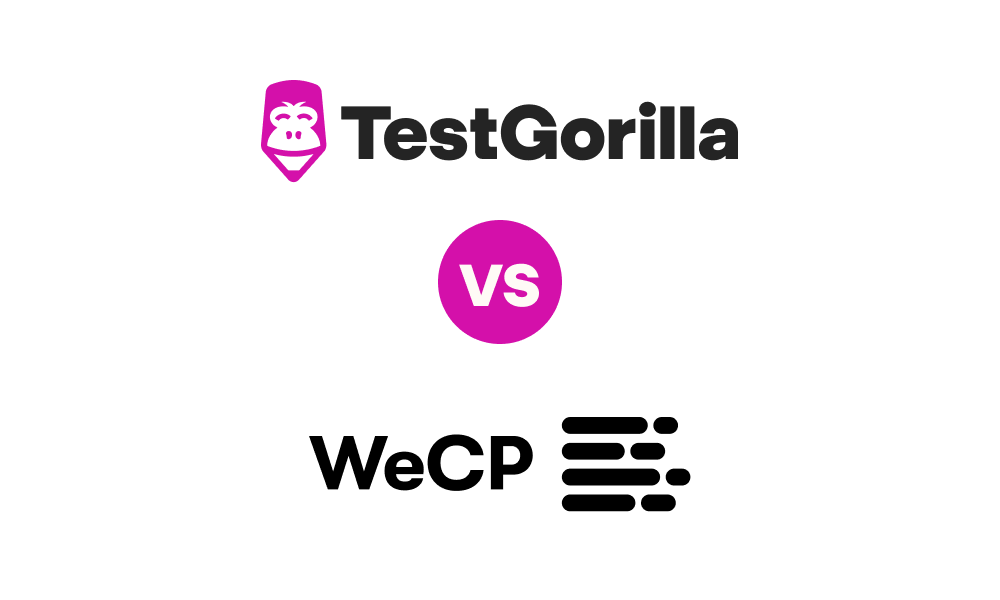Talent assessment
Find out what talent assessment is. Our articles give recruiters and hiring managers key insights into candidate potential.
Browse topics
The impact of talent assessment
of organizations using talent assessment tests saw a reduction in mis-hires
of organizations using talent assessment tools reported a reduction in cost-to-hire
of companies reduced their mis-hires
What is talent assessment?
Talent assessment provides recruiters and hiring managers with invaluable insights into candidate potential. By evaluating skills, behavior, and culture add, you can streamline your hiring process for optimal talent acquisition, ensuring that you find the right talent for your organization’s sustained success.
Read more
What is a talent assessment? Examples and frameworks to help you implement
Securing great talent is one of the highest priorities for HR professionals. Great candidates fuel your company, lead to better outcomes, and become your organization’s future leaders. You need a reliable way to get great candidates – and it’s best if it’s also efficient and affordable. Talent assessments are one of the top talent acquisition strategies in modern recruitment. They boost diversity, improve time-to-hire, and reduce total mis-hires. A study by SHRM found that 78% of HR professionals say the quality of their organization’s hires has improved due to skills assessments.[1] Let’s dive into the world of talent assessments, looking at the different types, the benefits of using them, and how to build them into a hiring strategy. We also cover 28 use cases of talent assessments, providing in-depth guides for each. If you already know the basics of talent assessments, feel free to skip ahead to the use cases.
Talent assessment tests: How to leverage this talent acquisition strategy and hire great candidates objectively
Vetting candidates properly can be challenging. Are they lying on their resume? Do they have an accurate measure of their own skills? Or are you about to hire a candidate who isn’t qualified for the job? If you get it wrong, you risk making an expensive mis-hire. Even worse, you need to start the hiring process for the role from the beginning. If you don’t, you risk compromising your team’s morale and developing an employee turnover problem. The solution? Use talent assessment tests to hire candidates based on objective, reliable data. Talent assessment testing is a strategy that makes a range of talent acquisition trends easier to get right. Our State of Skills-Based Hiring report found that 92.5% of organizations using this strategy saw a reduction in mis-hires. In this guide, we explore how to use a library of skills tests to evaluate potential candidates’ abilities. We also cover the best practices for using recruitment assessment tests effectively and examples of real companies using this approach to succeed.
Employee skills assessments: Maximize your team's potential by assessing skills and competencies
Certain skills, like problem-solving, are important in any role – but how many of us can accurately gauge a team's strengths and weaknesses by looking at its performance? An employee skills assessment is the answer. This assessment process helps you diagnose team skill deficiencies and identify areas for potential training, hiring, and onboarding. In this article, we explain how to assess employees’ skills and abilities and give tips on how to use employee test results to improve your workforce.
The ultimate guide to building a talent acquisition strategy
The next decade is set to bring massive changes to the way we live and work. The World Economic Forum predicts that 23% of jobs will change by 2027, with 69 million new jobs created and a whopping 83 million eliminated.[1] Soft skill-intensive occupations will prosper, accounting for two-thirds of all jobs by 2030.[2] Strong talent acquisition skills are vital for survival in this rapidly-evolving landscape. From identifying priorities for hiring to navigating emerging talent acquisition trends, employers need a finely tuned global talent acquisition strategy to hit the ground running. But when so much is changing in the labor market, where do you get started with talent acquisition strategies? In this blog, we cover the benefits of innovative talent acquisition strategies and deliver 26 actionable tips for developing a talent acquisition strategy for your business. But first: What is a talent acquisition strategy, and why does your organization need one?
Hiring an independent contractor: How talent assessments help employers evaluate freelancer skill
Employers are facing a serious talent shortage. Between 2010 and 2020, the traditional pool of entry-level workers aged 16-24 shrank in size, leaving businesses struggling to find the talent they need.[1] And as existing workers make career moves and life changes, it’s hard for employers to retain top talent, too. Hiring a contractor is a quick and effective solution to a talent shortage in your workplace. But how can you verify independent contractors’ skills and capabilities to ensure you’re working with the best? It’s simple: Use skills-based hiring techniques to screen for vital skills before you commit to hiring an independent contractor. In this guide, we explore what independent contractors are, why they can be a challenge to hire, and our top tips for using talent assessments to streamline your process for hiring an independent contractor.
Top 7 skills assessment tools to hire the best talent
Take it from us – the best way to gauge a candidate’s talent is through objective skills testing, not resume screening. Fortunately, there are lots of different skills-based assessment tools and software providers, each with its own methodologies and test types. But how do you narrow down what’s best for your hiring process? We’re here to help – below, we explore the top seven skills assessment tools to help you start making more confident hiring decisions.
Benefits of talent assessments
How can talent assessments help your business grow? Recruiters and hiring managers can gain a comprehensive understanding of how talent assessments streamline the hiring process, and ensure optimal candidate selection. Talent assessments drive informed decisions, enhance employee retention, and cultivate a high-performing workforce, ultimately boosting organizational productivity and success.
Read more about the benefits
Talent pool management: How talent assessments help you build and organize a database of potential candidates
The average time to hire in the US is around 36 days – that’s a long time to wait for new talent to fill open roles.[1] To make things worse, HR managers are under pressure to boost hiring efficiency. Many turn to talent pools to help; however, you can’t expect a talent pool to provide the best employees on its own. What if the niche skills you filled your pool with months ago are no longer relevant to your current roles? What if prospects you once considered “ideal” need extensive training? You risk wasting time, money, and resources without a proper talent pool management plan. Combining a well-managed talent pool with skills testing finds you candidates who are: Ready to interview Keen to learn and develop the skills you require Reliable culture adds Likely to stay with your company Below, we look at the definition of talent pool management and how talent assessments can help you keep your talent pool thriving.
Internal recruitment: How talent assessments help you ace hiring from within
Traditional hiring methods that have been relied upon for decades are facing challenges and limitations. Everywhere you look, businesses are struggling to attract and retain talent at an unprecedented scale. This desperation leads to many companies making bad hires, forcing them in a vicious, time-consuming cycle of hiring and rehiring. And, with a bad hire costing up to 200% of an employee’s yearly wages, traditional hiring methods are become a real gamble.[1] But think about this: That difficult-to-find, highly motivated candidate may be closer than you think – they could even be in your organization already. So what’s the best way to identify that candidate? Use skills-based hiring practices. Internal recruitment, fused with talent assessments, helps your business get it right when filling an open role. If you want to read about the ins and outs of internal recruiting, you’re in the right place.
Identifying hiring needs: How talent assessments help you understand what to hire for
You’ve just hired a great new receptionist: He’s punctual, friendly, and organized. But there’s a problem. Half of your clients speak Spanish, and your receptionist only speaks English. You could have tested for Spanish language ability during hiring if you had recognized your clients' needs. But now you’ve made a mis-hire, worsening 50% of your customers’ experience. Understanding your hiring needs before you start recruiting is crucial. A good hiring-needs analysis makes the difference between a great hire and a mis-hire. It clarifies which skills and abilities you need in your recruitment strategy. However, identifying hiring needs is tough without a repeatable process powered by reliable tools. That’s why you must use talent assessments to understand your business’s recruitment needs and assess your candidates against them. In this guide, we explore everything you need to know about identifying hiring needs: why it matters, some common pitfalls, and the best practices for analyzing your needs early.
Niche skills: How talent assessments help you discover the best recruits for specialized roles
Tech advancements – such as our increasing reliance on artificial intelligence – are forcing companies to hire for niche skills to stay competitive. These skills are scarce, hard to forecast, in high demand, and constantly changing. Moreover, niche skills aren’t exclusive to the tech world – many industries face the challenge of attracting, hiring, and retaining niche professionals. And if you don’t have any experience in a particular niche, it’s even harder to distinguish a passable applicant from an exceptional hire. Thankfully, with skills testing, you can: Break down complex roles Test for the right skills and personality traits Objectively and confidently gauge your candidates’ niche abilities Spot high-quality candidates Hire niche experts or add them to your talent pool for future hiring initiatives If that sounds exactly like the help you need, dive into this article and explore how to use assessments to boost your organization’s niche talent acquisition efforts. If you’re keen to start taking action, jump ahead and start with our eight actionable tips.
Hiring quality candidates: How talent assessments help identify the skills your company needs
Finding great talent for your business is no easy task. Even if you find a candidate who ticks all the traditional boxes – like years of experience and great references – it’s no guarantee that they’ll succeed as part of your company. After all the work and expense of hiring them, you might find they were only a high performer in their previous role due to specific skills and cultural alignment. It’s a costly, frustrating mistake to make. But there’s a way to identify quality candidates quickly and simply during the hiring process: talent assessments. More and more businesses are using pre-employment skills testing to evaluate candidates’ skills against the needs of open roles, making finding a quality candidate easier than ever. In this guide, we explore why it’s important to identify good qualities in a job candidate. Then we cover how to measure candidate quality using talent assessments, including actionable best practices.
Hiring efficiency: How talent assessments help streamline the recruitment process
Filling roles promptly is crucial to organizational growth and success. But many hiring initiatives hit roadblocks like poor communication and seemingly-endless stacks of resumes, with many high performers slipping through the cracks. Talent assessments boost hiring efficiency by quickly locating talent, reducing time-to-hire, and increasing retention. Struggling to hire a new software engineer? Skills tests, like our Software Engineering Online test, evaluate a candidate's role-specific programming skills and only take 10 minutes to complete. Instead of sitting through hours of interviews, talent assessments also measure candidates’ soft skills, personality types, and situational judgment. This way, you can focus on a candidate’s ability to do the job. In this article, we explore the common difficulties with hiring efficiency, how talent assessments boost efficiency, and the different ways to implement them into your hiring process.
Talent assessment tools
Discover the diverse, effective ways to evaluate candidate potential. Find out how cognitive tests, skills-based evaluations, and behavioral assessments offer recruiters and hiring managers invaluable insights for informed decision-making.
Uncover the power of tailored assessment strategies in identifying top-tier talent aligned with your organizational objectives and company culture.
Read more about the different talent assessment tools
Recruiting technology: What’s new and what’s next
It’s easy to forget how far recruitment technology has come in the past two decades. Online job boards only started popping up in the late 1990s, with LinkedIn arriving in 2003. Until a few years ago, you had to rely on word-of-mouth referrals and cold-calling over actual telephones to connect with potential candidates. Hopeful job candidates hand-delivered printed resumes, which were promptly filed away for future use (or thrown in the garbage bin). Clearly, recruitment technology is evolving quickly, and it may look completely different by 2030.
6 talent assessment tools to boost quality of hire
Spotting motivated candidates with the right skills for your open roles can feel like a mammoth task, especially when you’re just starting to scale your hiring. Using the right talent assessment tools is essential to avoid wasting your own or your candidates’ time and to make the right hire. In this article, we discuss the different ways of conducting assessments for job roles and break down the benefits of the six best online assessment tools for hiring: TestGorilla Maki Testlify Canditech Indeed HackerRank
The 10 best coding assessment tools for hiring programmers and developers
Software development roles demand strong skills in many different programming languages. Naturally, your business’s hiring managers should evaluate candidates' coding skills to make sure you recruit programmers and software engineers who fit the job requirements. Using assessment tests for general coding can be valuable because, unlike resumes, they offer direct insights into a candidate's skill level and practical knowledge of the necessary programming languages. They can also be more effective than a traditional whiteboard coding test because online assessments better resemble the coding environment candidates have come to expect. Below, we review the 10 top coding assessment tools designed to evaluate candidates' general coding abilities and empower you to make better hiring decisions.
Best 5 talent assessment test tools with anti-cheating measures
One of the most important features to look for when choosing a talent assessment test platform is strong anti-cheating measures. With reduced opportunities for candidates to cheat, your pre-employment testing is fair for all candidates. You also know the results are an accurate reflection of the candidates’ aptitudes, skills, and personalities. With this in mind, we’ve researched the top providers with robust anti-cheating measures to help you find the best one for your business.
Online assessment platforms available in different languages
Let’s say you need to hire someone for your office in Paris. An online assessment platform will enable you to evaluate their skills objectively, even if you’re based in a different country. Another thing to consider is that candidates in your Paris location might not be fluent in English. This is why it’s good to look for online assessment platforms that not only have large test libraries but are also available in different languages. To help you find the ideal solution for your business, below we cover the top four online assessment platforms available in different languages. Read on to see what they are!
3 Best Pre-Employment Testing Software for API Integration
For companies striving to make informed hiring decisions, pre-employment testing software is a powerful tool for streamlining the recruitment process. These software services help assess candidates’ skills, aptitude, and organizational fit, providing valuable insights that can greatly inform the decision-making process. The top products go beyond the standard features of the rest of the pack, offering seamless integration with Application Programming Interfaces (APIs). API integration means that other software you use can “hook into” the testing platform to further automate your hiring process. The best pre-employment testing software for API integration enables seamless connectivity with other systems and software, such as applicant tracking systems (ATS) and human resource management systems (HRMS). This integration empowers you to effortlessly transfer candidate data, automate workflows, and generate comprehensive reports – all within a unified ecosystem. With good API access, pre-employment testing software becomes a powerful catalyst for efficiency and productivity. It eliminates the need for manual data entry, reduces errors, and ensures data integrity across various platforms. API integration enables organizations to leverage the full potential of their existing tools and systems for a cohesive and streamlined recruitment process.
Compare talent assessment tools
Explore our talent assessment tools comparison in our 'TestGorilla vs.' series. We'll break down the features and pricing of different tools and help you understand their pros and cons. Discover which one suits your recruitment needs best and makes hiring top talent a breeze.
Need to choose now? Check out our comprehensive guide below to compare the top talent assessment tools on the market.
Read assessment tools comparisons
Top 4 talent assessment software platforms for hiring the best candidates
Finding the right talent for your team can make or break your business. Your team is what keeps everything ticking along, so hiring the right people can unlock the potential of your business. Hiring talent can be a stressful and time-consuming process. But luckily, pre-employment testing software can reduce the likelihood of mis-hires, remove bias from the recruitment process, and streamline the interview process. In this article, we explore the pros, cons, and pricing of the top four talent assessment platforms on the market to help you pick the right one. Let’s jump in!
TestGorilla vs. 123test
Testing job candidates’ skills and qualities is an effective way to get the right hires for your business. It ensures that an applicant is proficient at the skills they list on their resume and evaluates whether they’ll be a good fit for your company. Importantly, pre-employment screening helps remove human bias from your hiring process. You need the right pre-employment testing software to make better hiring decisions. This guide compares the features of two testing platforms: TestGorilla and 123test.
5 talent management assessment tools for creating custom questions
Talent assessment tools enable you to test candidates and see if their skills and personality are right for your open position. But every company has unique requirements for a job role, with some focusing purely on hard skills and others focusing on skills, traits, and culture fit. This is why the option to add custom questions is a must-have feature in any pre-employment screening platform. In this article, we’ll compare the five best talent management assessment platforms and their features to help you pick the best one for your organization.
TestGorilla vs. TestDome
Pre-employment testing is one of the most reliable indicators of a candidate’s success in your open role. These assessments can measure a candidate’s personality, motivation, and skills to help you understand whether they’d be a good fit for your organization – without risk of bias. The results of your assessments can help you make fair hiring decisions based on objective data. This minimizes the chance of a mis-hires and, in turn, reduces employee turnover. TestGorilla and TestDome are two popular choices for pre-employment testing tools. Read on to learn why TestGorilla is the best option to revolutionize your hiring process.
TestGorilla vs. eSkill: Which platform is the right choice?
It’s important for businesses to ensure potential candidates are able to perform to company standards. For this reason, pre-employment screening tools have become increasingly prevalent and useful in determining the right fit. TestGorilla and eSkill are pre-employment screening platforms that give your company the resources to enhance its hiring methods. This comparative review will help you decide if TestGorilla is the better solution for your needs.
TestGorilla vs. WeCreateProblems (WeCP)
Resumes are becoming a thing of the past. Nowadays, pre-employment testing is the most reliable way to determine a candidate’s potential for success in a role. Not only does pre-employment testing provide greater insights into your candidate than a resume, but it also eliminates unconscious bias from the recruitment process. You’ll save time and money by avoiding the need to manually screen resumes. However, with so many pre-employment screening options available, it’s tricky to know which one to choose. In this article, we’ll compare TestGorilla with WeCreateProblems (WeCP) and explain why TestGorilla is the best choice for your hiring needs.
How to recruit talent
How and where do you find the best talent? Maximize your recruitment success with our top blogs, which provide essential insights for recruiters and hiring managers. Discover innovative strategies to attract top-tier talent, how to take advantage of comprehensive recruitment methods, and how to foster a diverse, inclusive workforce.
Uncover the key to successful talent acquisition, from crafting compelling job descriptions to implementing effective interviewing techniques, to ensure a seamless recruitment process.
Read more about how to recruit the best talent
9 talent acquisition skills and how to assess them when hiring a talent acquisition specialist
Many companies still rely on traditional resumes to find employees with the right talent acquisition skills. This method is outdated and offers a limited view of the hiring process. It’s like using a paper map instead of Google Maps to navigate a new city. Talent assessments are the “Google Maps” of hiring, helping you easily identify key skills for talent acquisition specialists. In this article, we explore the most important talent acquisition specialist skills and explain how to use different tests to assess these capabilities.
How to hire top programmers if you don’t have programming skills
Demand for good tech talent is high everywhere in the world, and this has caused a flood of inexperienced programmers to enter the market, hoping to get high-paying jobs. Many finish a three-month-long coding bootcamp or a few online courses and believe they’re ready to take on a programming role. The market for bootcamps experienced a boom during the pandemic and is projected to grow by $772.04m from 2020 to 2025, according to the market research firm Technavio. This influx of coders has muddied the talent pool and can make hiring programmers a nightmare for recruiters who don’t have technical skills. Even experienced hiring managers with tech backgrounds can have trouble filtering bad candidates because there are dozens of programming languages, many of which do the same thing in different ways. Therefore, it can be challenging to evaluate candidates for particular programming skills unless you have that specific skill set yourself. The good news is programming is a measurable skill, and you don’t have to depend entirely on proxy variables of skill, like education and experience, to identify skilled developers. In this post, we’re going to cover the five steps to follow when hiring top programmers for your organization.
How to hire a talent acquisition manager using TestGorilla
Once your company hits the growth stage in which you find yourself with dozens of open roles, it’s time to hire a talent acquisition manager. While it’s not necessarily a senior role, your talent acquisition manager is the gateway to your organization. Not only are they the smiling face that greets candidates for the first time, but they also make the key decisions about who makes up your organization and who doesn’t. If your people make your company, and your talent acquisition manager finds your people, then your talent acquisition manager makes your company. Clearly, your first talent acquisition manager hire is a big one. But how do you hire a talent acquisition manager when you don’t have a… talent acquisition manager? In this article, we’ll discuss the skills to look for in a talent acquisition manager. We’ll also show you how you can use TestGorilla’s free pre-employment assessments to test these skills so that you’re confident about hiring the right person to move the talent needle in your organization.
How to recruit a team for your startup: 7 best practices
Getting a startup off the ground is a literal adventure – it’s both challenging and exciting because it’s uncharted territory. At this point, you’re still defining your strategy, job descriptions, responsibilities, and hiring process. On top of that, the market for talent is fiercely competitive right now. Your startup needs solid recruitment strategies to stand out and attract the top candidates. But startup hiring is also an exciting and meaningful process. It’s an opportunity to nurture new relationships and build the dream team that’ll take your business to the next level. In this guide, we’ll discuss the seven best practices to facilitate recruitment for startups, from displaying a solid company culture to creating a robust, skills-based hiring process.
Hiring millennials: How talent assessments help hire an independent and innovative workforce
Millennials are currently the largest working generation, representing 35% of the total US labor force.[1] But the prevalence of millennial employees doesn’t mean they’re easy to hire. In fact, this generation poses a series of unique challenges that traditional hiring practices aren’t equipped to handle. Millennials’ desire for new technology in hiring, the freedom to explore different career paths, and transparency in their professional relationships requires an innovative recruiting strategy to fulfill these demands. Talent assessments are a skills-based tool for hiring millennials and filling in-demand roles with quality candidates. Whether you’re hiring an engineer with our Software Engineer test or assessing candidates’ communication skills, talent assessments are the key to hiring and retaining millennials. In this article, we discuss what millennials are, the difficulties with hiring them, and how to hire millennials with talent assessments.
Diverse candidates: How to leverage this talent acquisition strategy and build an inclusive team
Far too many companies treat diversity like a trend or a corporate “checkbox.” However, many organizations don’t try to do this. They’re just trying their best to provide equal opportunities and enhance their workforces. Even so, these diversity targets often end up failing, with little to no added diversity after each hiring initiative. But hiring diverse candidates is more than just targets. It’s about building a culture of inclusivity and designing a recruitment process that gets them through the door. With the right care, hiring diverse candidates can be one of the best talent acquisition strategies you have. Diverse candidates attract more diverse candidates, so once you design the right system, it builds on itself. This blog discusses the importance and benefits of hiring diverse candidates. It also offers 8 best practices for attracting diverse candidates, like using pre-employment tests and partnering with diverse organizations.
Talent assessment FAQ
Top talent is priceless. We make finding it affordable.
A time-consuming talent assessment process can cost you a lot. Painful mis-hires can cost you much, much more. With TestGorilla, you can avoid these pitfalls and see a significant return on investment every single year.
Sounds good? Sign up for our free plan, and start creating a talent assessment today.










































